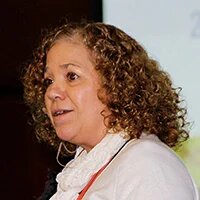“In times of change learners inherit the earth; while the learned find themselves beautifully equipped to deal with a world that no longer exists.” Eric Hoffer
Many people are surprised when I explain that my passion is to help people increase their digital skills, help them “detox” and browse the world of Information Technology and Communication naturally without complexes, putting the internet at their service and climbing on to the “digital settlers” bandwagon. Unlearn old habits to reset our professional life with no strings attached in line with the new paradigm. They are surprised because that doesn’t seem to fit with my age nor career path.
No wonder, I was born tied to technology as most of us. I ‘m a preemie; I was in a hurry to be born and inaugurated one of the revolutionary incubators unveiled at the clinic on the very day. I even came out on TV news for that very reason, so from that moment onwards my vocation for technology and multimedia was sealed.
And that’s how many of my generation are premature too. We stepped on the moon, we were in Woodstock, we experienced May 68 in France, or the Spanish Transition. We were the revolution, especially sexual one. We used the first desktop PC. We too created the prominent role youth play.
And now we will be the longest living generation in the history of mankind and we will have to work to continue surviving many more years than our parents. So we too have shaped the new role of the “Golden Workers”, older workers, for we are many, we are more, and because we are made for change. And the new change we must face has to do with the digital world.
We are called either digital immigrants or outsiders, but if I look around every day, it’s increasingly apparent that the classical definition of the digital divide—digital exclusion by age, educational level, social status and gender—does not fit with most of my generational peers or with the women I know, or with the educational and social strata regarded as outsiders.
The more modern definition of the digital divide is described as the separation between people (communities, states, countries … ) who use information and communication technologies (ICT) as a routine part of their daily lives and those who have no access to them—even if they were to have them, they wouldn’t know how to use it.
I subscribe to this definition because together with the social and cultural differences add in the will of the people who jump on the bandwagon of new communication and relationships. At the heart of the matter is the gap between the “wants” and “want nots”, those who want to surf the new wave of the knowledge technology and those who don’t. The digital divide is in involvement.
So once again, we face a “learning” issue that has become crucial in these “liquid times”, an expression coined by Zygmunt Bauman to describe the transition from a “solid” (stable, repetitive) to a “liquid” (flexible, changeable) modernity. An era in which social structures do not last long enough to solidify, and do not serve as a reference for human actions. This new framework involves the fragmentation of life; it requires individuals who are flexible, who are willing to change tactics, to abandon commitments and loyalties.
Change, constant learning –there’s no job for life anymore, developing the same role within the same profession. A few days ago on LinkedIn, I received a message from Foxize School that sums up in the impact of their advertising slogan, this transformation of the labor market:
YOUR WORK WILL DISAPPEAR WITHIN 5 YEARS
YOU WON’T
The new working environments will force “Golden Workers”, the senior workers, to reinvent themselves. This basically assumes an open mind towards continual learning, to being in a constant “beta state”, under construction as the popular saying goes:
I DON’T AGE, I LEVEL UP.
This is all about continuous learning to increase our knowledge, ability to apply this knowledge effectively, consistent application of knowledge and skill—creating a virtuous circle called experience which increases productivity.
Learning today is inevitably over the internet which has become our external memory. As Marc Prensky states, thought and wisdom have now become a symbiosis of the human brain and digital accessories. Thus, the priority of “Golden Workers” should be to acquire digital skills that allow them access to information and conversations taking place on the internet for continual professional development.
We, the “Senior Employees”, the “Golden Workers”, have no choice other than to evolve from the from digital “immigration” to “residence” to carry on with Prensky’s jargon, who deems the “digital settler or resident” as a person who has criteria, who filters, produces and co-produces. Such a person has media knowledge (media expression) and can produce. Called a “prosumer” (information productor – consumer), this is someone who lives in the internet network and is always connected.
As soon as the use of digital resources is built into our daily habits, the “Digital Homo Sapiens”, which Prensky talks of, embarks on the path to “digital wisdom” boosting our natural abilities with existing technologies, and adept at controlling digital technology so it meets our needs.
This way, the “baby boomers” continue in the gap, because we want to be part of, and participate in the great social transformation that the information and knowledge age has triggered.






